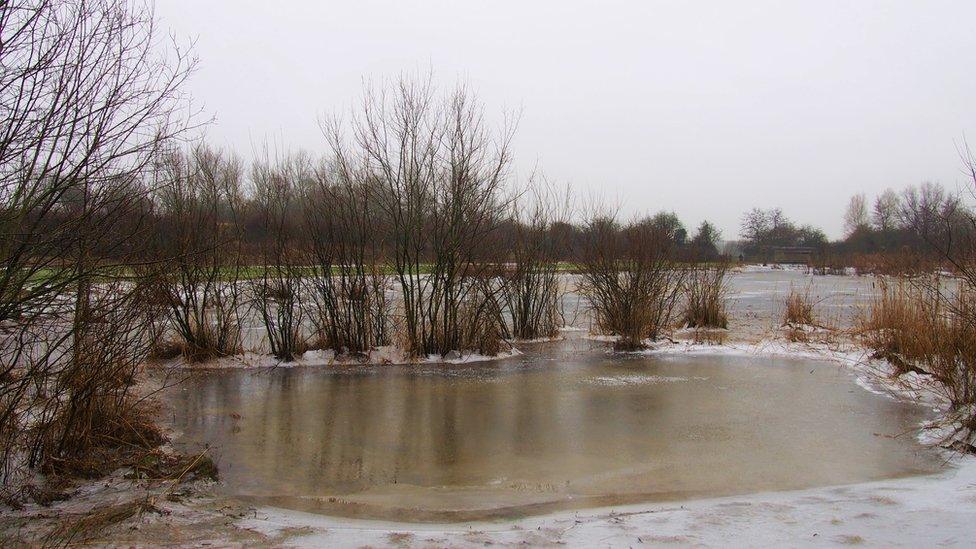New wildlife habitats to restore historic Oxfordshire wetlands
- Published

Part of the new floodplain wetland mosaic habitat at Pinkhill Meadow
More Oxfordshire wetlands are to be restored to their former glory in a project by national wildlife conservation charity Freshwater Habitats Trust and Thames Water.
The initiative will create a "mosaic" of floodplain wetland habitats in meadows next to Farmoor Reservoir, said the trust.
This includes eight new ponds and pools spread across a three-hectare site.
The partnership project is due to be completed by the end of January.
Partly funded by the government's Green Recovery Challenge Fund, the initiative is part of the trust's plans to build a national network of high-quality freshwater and wetland habitats for wildlife.
'Rich in biodiversity'
Once finished, the Oxfordshire waterbodies will complement other floodplain restoration work through the Thames Valley, enhancing habitats for species including otters, amphibians, dragonflies, water beetles, and rare and threatened plants, the trust explained.
Freshwater Habitats Trust has been involved in creating new ponds at the Farmoor Reservoir site for more than 30 years.
The first group of 25 ponds was created on Pinkhill Meadow next to the River Thames in 1990. Funded by Thames Water and the Environment Agency, it was used to trial the trust's design ideas for wildlife-rich ponds.
The Pinkhill ponds are now "exceptionally rich in biodiversity", and home to about 80 wetland plant species, as well as water vole, otter and a common toad community, said the trust.
Penny Williams, its technical director, said: "Oxfordshire can be proud of its wetland heritage. Through projects like this, we are restoring some of our historic habitats and helping to reverse the rapid decline in freshwater wildlife."
Richard Aylard, sustainability director at Thames Water, said: "Thames Water is committed to improving the local environment and believes this partnership will create a natural habitat where wildlife can thrive."

Follow BBC South on Facebook, external, Twitter, external, or Instagram, external. Send your story ideas to south.newsonline@bbc.co.uk.